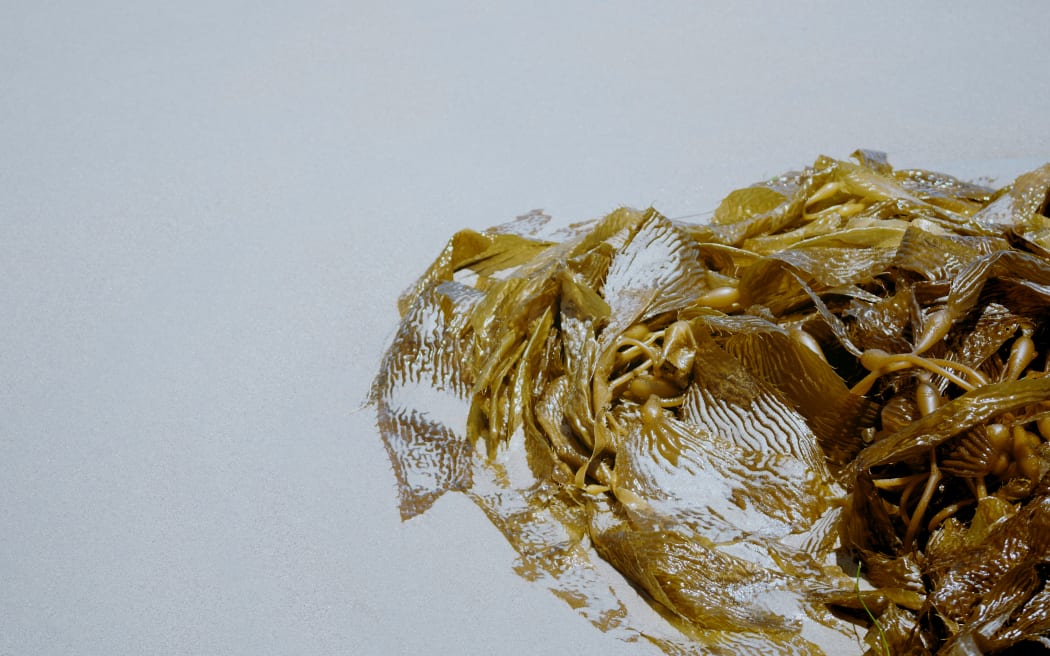Coastal plants and species may one day establish themselves in Antarctica, researchers predict.
As sea ice melts around the Antarctic coast, species like bull kelp could first travel to and establish themselves on the continent, University of Otago professor Ceridwen Fraser tells Jesse Mulligan.
"One day in the future, [Antarctica] might be a lot warmer and a lot more hospitable to plants and animals that currently live a lot further north."

Photo: James Lee / Unsplash
For the third year in a row we're looking at record low levels of sea ice around Antarctica, Professor Fraser says, including very large areas of ice-free ocean due to holes in the ice blanket.
"If we get patches of coasts in Antarctica that remain ice-free for long periods, there's a chance that large kelp species will be able to establish.
"Up until now, the Antarctic has not been a really great place for many species to live, and certainly still isn't. But one day in the future, it might be a lot warmer and a lot more hospitable to plants and animals that currently live a lot further north. I'm not saying that's a good thing, but that's what we're probably facing as the climate warms.
"We've certainly seen in the past that as the climate warms, species tend to move towards the poles … If they can't move towards the poles, they try to move uphill or down into deeper water where it's cooler. Right now, we've been many, many plants and animals moving towards the poles.
Pieces of open coasts - where bull kelp gathers with mussels and barnacles attached to it - are really important places for supporting diverse ecosystems of coastal life, Professor Fraser says.
We know kelp can grow in "really, really cold Antarctic water" around places like South Georgia, and it's now travelling even further south.
"We've picked up bits of bull kelp and also giant kelp washed up on beaches in Antarctica and it doesn't grow there. So we know that this kelp that can float really well. It can reach Antarctic coasts.
"When the kelp rafts travel at sea - and they can travel tens of thousands of kilometres floating at sea - they often carry little animals with them like crabs and snails and worms, so whole marine communities can turn up on these coasts, from further north, even from sub-Antarctic islands and potentially from New Zealand and South America, too."
While it would be "terrible" for the Antarctic coastal ecosystem if kelp is established there, she says, it's understandable such organisms are now on the move.
"We are certainly seeing lots of plants and animals moving towards the poles and they don't really have any choice as the climate warms. For temperate species, it might be their best chance of survival."
Related:
Signs found of worryingly fast Antarctic ice melt - New Zealand expedition
The fate of the West Antarctic ice sheet in a warming world
Researchers call for urgent emissions cuts as Antarctic sea ice 'drops off a cliff'

